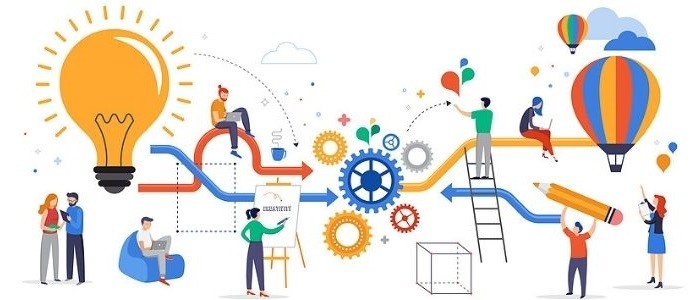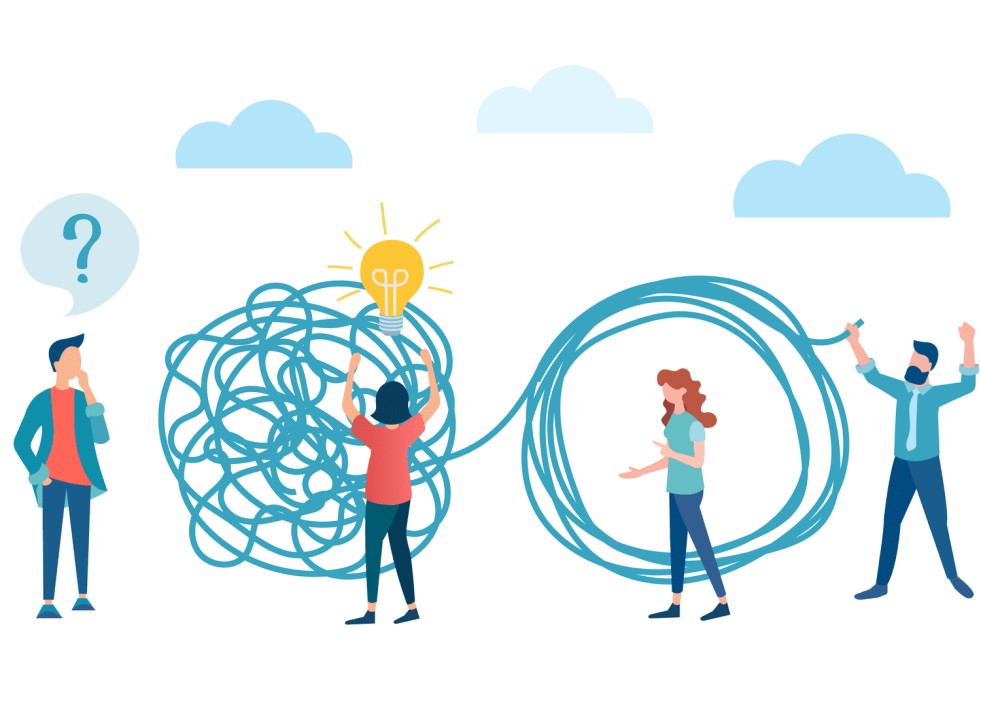Advanced Techniques in Leadership and Management
In today's rapidly evolving business landscape, conventional leadership approaches are often insufficient. Modern leaders must master advanced techniques that combine emotional intelligence, strategic thinking, and adaptive management to navigate complex organizational challenges.
The Evolution of Leadership Paradigms
Leadership has evolved dramatically over the past decades, moving from command-and-control hierarchies to collaborative, emotionally intelligent approaches. Today's effective leaders understand that technical expertise alone is insufficient—they must excel at building relationships, fostering innovation, and creating psychologically safe environments where teams can thrive.
At Al Mithaq Institute, our leadership programs emphasize this evolution, providing participants with both theoretical knowledge and practical applications aligned with contemporary leadership demands.
Key Leadership Paradigm Shifts
- From positional authority to earned influence
- From controlling to empowering team members
- From isolated decision-making to collaborative problem-solving
- From fixed mindsets to growth-oriented learning cultures
- From reactive management to proactive strategic leadership
Strategic Decision-Making Frameworks
Advanced leadership requires sophisticated decision-making skills. While intuition plays a role, structured frameworks help leaders make better decisions, especially under pressure. These frameworks help balance analytical thinking with creative problem-solving.
Some powerful decision-making models taught in our programs include:
OODA Loop
Observe, Orient, Decide, Act—a rapid decision cycle for volatile environments that emphasizes quick adaptation.
Cynefin Framework
A contextual model helping leaders identify whether they're operating in simple, complicated, complex, or chaotic domains.
RACI Matrix
Clarifies decision accountability by defining who is Responsible, Accountable, Consulted, and Informed.
Six Thinking Hats
Edward de Bono's parallel thinking process that separates emotion from logic and creativity from information.
Emotional Intelligence in Leadership
Research consistently shows that emotional intelligence (EI) distinguishes outstanding leaders from average ones. Leaders with high EI create more engaged teams, navigate conflicts more effectively, and build stronger organizational cultures.
At Al Mithaq Institute, we focus on developing the five core components of emotional intelligence:
The Five Pillars of Emotional Intelligence
- 1
Self-awareness: Recognizing one's emotions and their impact on performance and relationships
- 2
Self-regulation: Managing disruptive emotions and adapting to changing circumstances
- 3
Motivation: Driving oneself and inspiring others toward achievement
- 4
Empathy: Understanding others' perspectives and taking them into account
- 5
Social skills: Building networks, finding common ground, and fostering cooperation
Crisis Management and Resilient Leadership
Modern leadership requires preparation for inevitable crises—whether they're operational disruptions, public relations challenges, or global events like pandemics. Resilient leaders distinguish themselves by how they navigate these high-pressure situations.
Our programs at Al Mithaq Institute incorporate crisis simulation exercises that develop:
- Rapid assessment capabilities under pressure
- Strategic communication with stakeholders during uncertainty
- Team coordination during emergency scenarios
- Post-crisis recovery and organizational learning
- Personal resilience practices for sustained leadership
The Crisis Leadership Model
Anticipate
Identify vulnerabilities and develop contingency plans
Navigate
Make decisions with incomplete information while maintaining calm
Communicate
Provide transparent updates to all stakeholders
Learn
Extract insights and implement improvements
Building High-Performance Teams
Advanced leadership techniques include strategic team development. High-performance teams don't happen by accident—they're carefully cultivated through intentional leadership practices.
At Al Mithaq Institute, we teach leaders how to:
Establish Psychological Safety
Create environments where team members feel safe to take risks, share ideas, and make mistakes without fear of retribution.
Set Clear Expectations
Define success metrics, roles, and responsibilities that align individual contributions with organizational objectives.
Foster Constructive Conflict
Encourage healthy debate focused on ideas rather than personalities to drive better decision-making.
Develop Team Talent
Identify strengths, facilitate growth opportunities, and create succession plans for key positions.
Digital Leadership and Technology Integration
Today's leaders must navigate digital transformation while maintaining human connection. This dual focus represents one of the greatest leadership challenges of our era.
Digital leadership capabilities we develop include:
- Strategic technology investment decision-making
- Leading remote and hybrid teams effectively
- Cultivating digital literacy across organizations
- Balancing automation with human-centered approaches
- Managing cybersecurity and digital risk
Al Mithaq's Leadership Development Approach
Our comprehensive leadership programs blend theoretical knowledge with practical application:
Expert Instruction
Learn from practitioners with extensive leadership experience
Peer Learning
Exchange insights with other leaders facing similar challenges
Applied Practice
Implement concepts through simulations and real-world projects
Ethical Leadership in a Global Context
In an interconnected world, leaders must navigate complex ethical considerations across different cultural contexts. Ethical leadership builds trust, enhances reputation, and creates sustainable organizational success.
Our programs emphasize ethical frameworks that help leaders:
- Recognize ethical dilemmas before they become crises
- Apply structured decision-making to complex ethical questions
- Build organizational cultures that promote integrity
- Balance shareholder interests with broader stakeholder concerns
- Navigate cross-cultural ethical differences effectively
Leadership Programs at Al Mithaq Institute
We offer several specialized programs to develop advanced leadership capabilities:
- ✓ Executive Leadership Diploma - Comprehensive senior leadership development
- ✓ Crisis Management Certification - Specialized training for high-pressure situations
- ✓ Strategic Decision-Making Workshop - Practical frameworks for complex choices
- ✓ Emotional Intelligence for Leaders - Developing the human side of leadership
- ✓ Digital Transformation Leadership - Guiding organizations through technological change
Conclusion
Advanced leadership techniques represent a critical competitive advantage in today's complex business environment. By developing strategic thinking, emotional intelligence, crisis management capabilities, and ethical decision-making, leaders can navigate uncertainty and drive organizational success.
At Al Mithaq Institute, we're committed to developing the next generation of exceptional leaders through our comprehensive programs and expert instruction. Whether you're looking to enhance specific leadership capabilities or transform your overall leadership approach, our tailored programs provide the knowledge, skills, and practical experience needed for excellence.
Ready to Transform Your Leadership?
Explore our leadership programs and take the next step in your leadership journey.
Explore Programs






